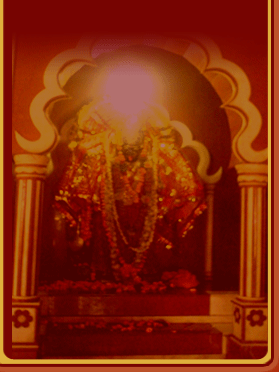|
|||||||||||
|
||||||||||||||||||||||||||||
 |
Fesitval |
|||
Sarasvati Puja in Eastern India |
|||
In the eastern part of India, West Bengal, Bihār and Assam, Saraswati Puja is celebrated in the Magha month (January-February). It coincides with Vasant Panchami i.e. the 5th day of the bright fortnight of the lunar month of Magha. People place books near the Goddess' statue or picture and worship the Goddess. Book reading is not allowed on this day. |
|||
| Sarasvati Puja in South India | |||
In the southern states of India, Saraswati Puja is conducted during the Navaratri. Navaratri literally means “Nine Nights”. But the actual celebrations continue during the 10th day which is considered as Vijaya Dashami or the Victorious Tenth Day. Navaratri starts with the new moon day of the bright fortnight of the Sharad Ritu (Sharad Season of the six seasons of India) during September-October. The festival celebrates the power of the feminine aspect of divinity or shakti. The last two or three days are dedicated to Goddess Saraswati in South India. |
|||
| In Tamil Nadu, Sarasvati Puja is conducted along with the Ayudha Puja (the worship of weapons, and implements including machines). On the ninth day of Navaratri, i.e. the Mahanavami day, books and all musical instruments are ceremoniously kept in front of the Goddess Sarasvati early at dawn and worshipped with special prayers. No studies or any performance of arts is carried out, as it is considered that the Goddess herself is blessing the books and the instruments. The festival concludes on the tenth day of Navaratri (Vijaya Dashami) and the Goddess is worshipped again before the books and the musical instruments are removed. It is customary to start the study afresh on this day, which is called Vidyarambham (literally, Commencement of Knowledge). | |||
| In Kerala, the last three days of the Navaratri festival, i.e. Ashtami, Navami, and Dashami are celebrated as Sarasvati Puja. The celebrations start with the Puja Veypu (Placing for Worship). It consists of placing the books for Pooja on the Ashtami day. It may be in one’s own house, in the local Nursery School run by traditional teachers, or in the local temple. The books will be taken out for reading, after worship, only on the morning of the third day (Vijaya Dashami). It is called Puja Eduppu (Taking [from] Puja). Children are happy since they are not expected to study on these days. On the Vijaya Dashami day, Kerala celebrates the Ezhuthiniruthu or Initiation of Writing for the little children before they are admitted to nursery schools. This is also called Vidyarambham. The child is made to write for the first time on the rice spread in a plate with the index finger, guided by an elder of the family or by a reputed teacher. The little ones will have to write “Hari Shri Ganapataye Namah” and recite the same to mark the auspicious entry in to the world of education. This is considered a memorable event in the life of a person. In some parts of Kerala bordering Tamil Nadu, Ayudha Puja is also conducted during this period. | |||
|



